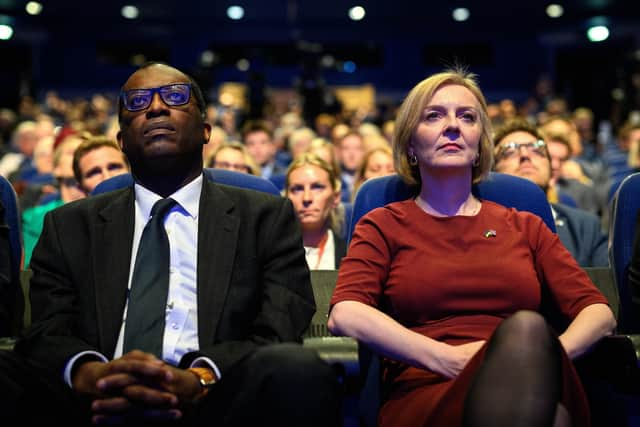How businesses can engage with politicians despite the constant upheaval - Mia Briggs
It is hard for organisations to know how to navigate the merry go round of ministers and where the constant changes leave policy, financial and regulatory decisions affecting them.
Even if Sunak succeeds in his mission of uniting the party, a general election looms on the horizon in the next two years.
Advertisement
Hide AdAdvertisement
Hide AdWith the year before an election devoted to the parties focussing on their winning strategies, that leaves just a year or so for any proper governing to take place.


Whilst change is part and parcel of engaging in politics, there are some key principles that businesses should bear in mind in their engagement that become even more pertinent at times like this.
Firstly, build relationships on a cross-party basis even in ‘peacetime’. These relationships need to be in place before you need them.
If you are contacting ministers about an issue, you should also be engaging with their shadow ministerial counterparts to keep them informed.
Advertisement
Hide AdAdvertisement
Hide AdWhilst engaging with MPs in the party of power makes sense in terms of their ability to raise issues with ministers of the day, behind the scenes in politics a lot of work is collaborative.
MPs from all parties work together on an issues basis through select committees, all-party parliamentary groups and on local and regional matters. Your cause is more likely to be successful if you can demonstrate a broad coalition of support.
By building up a strong, cross-party group of supporters over time you are then in a good position to draw on their backing when you need them. If there is an urgent policy issue for you to engage on, you don’t want to be going from a standing start.
Linked to this, who you know is much less important than your ability to tell your story effectively. As has been evidenced over the last few months, those at the top are not often there for very long so pinning your hopes on individuals is a risky strategy.
Advertisement
Hide AdAdvertisement
Hide AdMuch more important is to think about how to convey your message effectively to as many people who have an influence over, or interest in, the issue as possible. How is your message of interest to those you are contacting? How can you align your work with helping to deliver their ambitions? This will mean framing your arguments differently depending on the audience.
Go with solutions not problems. Ministers don’t want to hear that their policy doesn’t work, they want to hear how it could be more effective.
Frame this in the language of unintended consequences rather than being highly critical. Be armed with evidence to support your arguments.
By being helpful you are much more likely to be listened to and have the opportunity to input to policy change.
Advertisement
Hide AdAdvertisement
Hide AdWhilst ministers come and go, civil servants generally stay the course and work on the detail of policy. The exception of course being if the new Prime Minister takes aim at your departmental ‘orthodoxy’, as Liz Truss did with Treasury officials. Build your relationships with them rather than just political appointees. They might not know which way the wind is blowing in terms of the political decisions that will ultimately be made, but they will at least be able to factor your arguments into future consideration when briefing new ministers.
Upon the appointment of new ministers, there is always a clamour from organisations to get their welcome letters in first. Bear in mind that the whole of your sector will be doing the same and there is no benefit to sending a letter solely to welcome someone to their post.
Unless you have an urgent issue to discuss, it is more effective to hold off on saying hello until you have something tangible and of interest to engage on or invite them to.
This ties into the broader point that context is everything. Whilst something might be a top priority for you, it is unlikely to be the burning issue on an MP or minister’s mind. Especially in times of frenzied political activity, you are unlikely to get traction.
Advertisement
Hide AdAdvertisement
Hide AdThink about what is going on in Westminster and save your emails and calls so that they don’t coincide with key votes, major statements or fiscal events.
Finally, be flexible. You might have spent hours working on a strategy about how to engage with the current administration only for it to fall before your eyes.
You need to know when to change course but if you have followed the steps above you will likely already have the building blocks in place to navigate in a new direction.
Mia Briggs is the director of The Public Affairs Company.